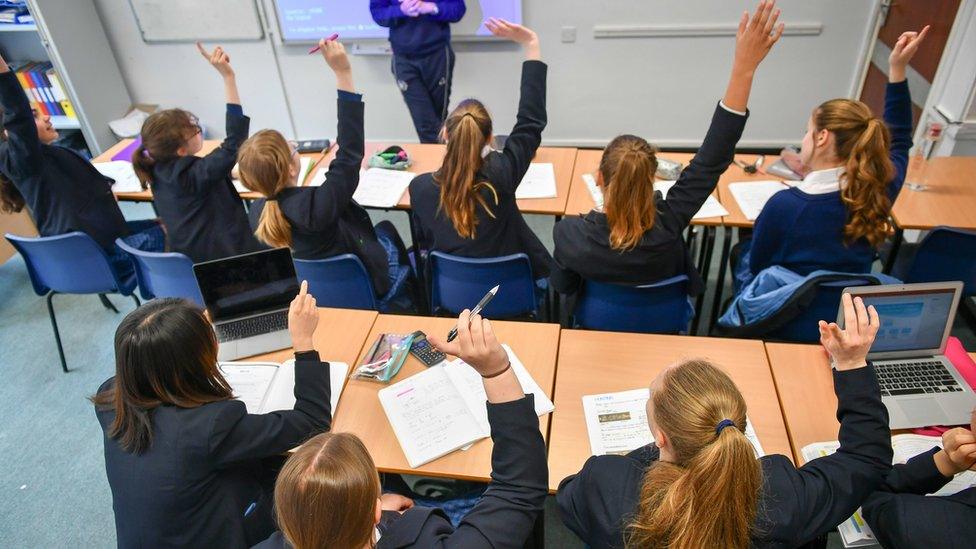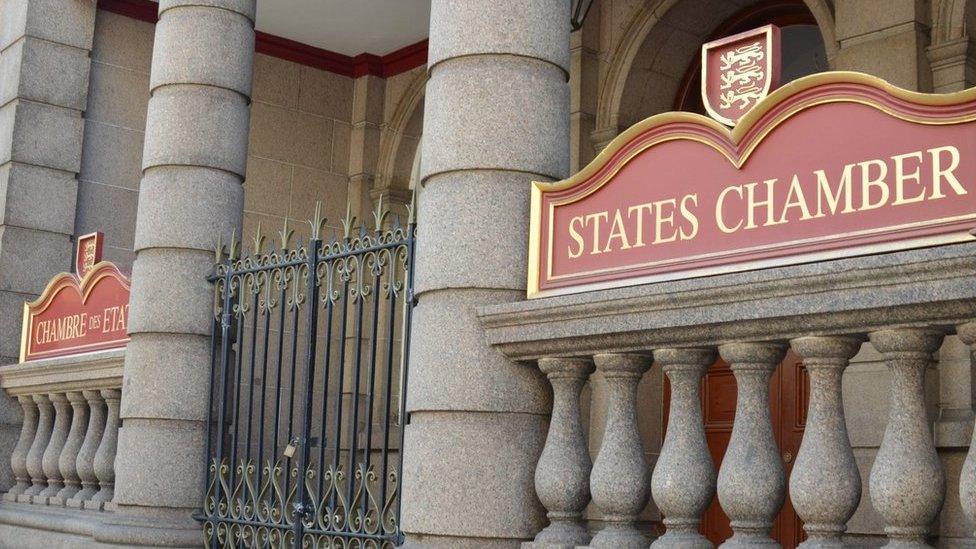Three days of teachers' strikes begin in Jersey
- Published

Previously, the States Employment Board said the strikes were "damaging the education of our children"
A teaching union in Jersey has started three days of strike action.
NEU members rejected the latest pay offer from the government, which included an 8% pay rise for 2024 on top of the 7.9% agreed for 2023.
Previously, the States Employment Board (SEB) said the strikes were "damaging the education of our children".
In a letter, SEB Vice Chair, Deputy Elaine Millar, and Education Minister, Deputy Inna Gardiner, said they wanted education to "thrive".
'Disruptive'
The letter to islanders said the ongoing strikes were "not only disruptive to our young people's education, but also to the parents, grandparents and carers who have had to find childcare at short notice or take time off work that has cost them money or holiday time, just when they need it most".
The NASUWT is still considering the pay offer and has suspended its industrial action.
The union also said at the beginning of December that its industrial actions were not disruptive to education, and the action was "designed to have as little impact on children as possible".
The SEB offered all public servants a 7.9% pay rise at the beginning of 2023, with teachers accepting the backdated pay award with a commitment to enter negotiations on a multi-year pay deal.
'Simply unrealistic'
The government said NEU and NASUWT had requested a 15.4% pay rise for 2023, and the NEU had asked for a 17.6% rise in 2024.
The NEU has disputed the figures.
In June, the government offered the unions arbitration - submitting the dispute to be resolved externally - but the offer was rejected.
The letter from the SEB vice chair and education minister said: "Everyone would like a significant pay rise, but the government is equally certain that islanders can see this is simply unrealistic when average earnings increased by 7.7% in the last year.
"Giving in to the unions' demands would put public finances into the red and keep them there.
"This would be irresponsible when we have so many calls on the public purse and a responsibility to balance the demands of teaching unions with those of the whole community."
The NEU and NASUWT have been contacted.

Follow BBC Jersey on X (formerly Twitter), external and Facebook, external. Send your story ideas to channel.islands@bbc.co.uk, external.
- Published7 December 2023
- Published1 December 2023
- Published21 July 2023
- Published28 June 2023
- Published11 January 2023
